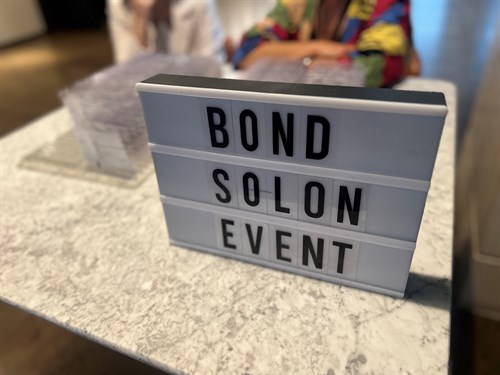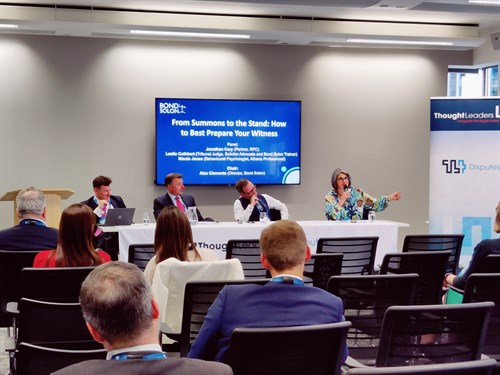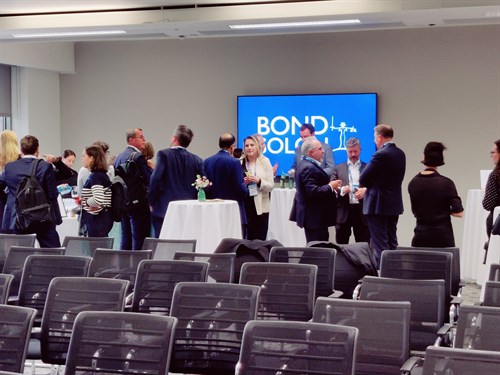Related Sector: Witness Familiarisation
On Thursday 29th June, Bond Solon was delighted to host an event at our offices in Aldgate, in partnership with Thought Leaders 4 – ‘From Summons to the Stand: How to Best Prepare Your Witness’.
The event commenced with an interactive panel discussion chaired by our Director of Witness Familiarisation, Alex Clements. Our expert panel consisted of Jonathan Cary - Partner at RPC, Leslie Cuthbert - Tribunal Judge, Solicitor Advocate and Bond Solon Trainer and Nicola Jones – Behavioural Psychologist at Athena Professional. Together, they explored how the process of selecting witnesses has changed in the aftermath of PD57AC, cognitive interviewing techniques to get the most out of your witness and how an understanding of the principles of behavioural psychology can enhance your witness’ performance in court.
We then wrapped up the session with an evening of drinks, delicious canapes, and networking!
Here are our highlights from the panel discussion:
Jonathan Cary on the selection of witnesses and drafting witness statements
Pre PD57AC, the focus was on seniority, gravitas, and polished operators. But now it has to be the person who really knows, with shorter statements focusing only on issues the witness knows about.
Consider practical issues of timing of when you take the statement – is it better to do it quickly (rushed, without the background) as soon as possible or six months later when you’re up to speed but time has elapsed? Write down what you remember – though this tends to be very jumbled. Get people to do ‘self-administered interviews’.
Leslie Cuthbert and Jonathan Cary on memory recording
Memory is not like a video recorder. It changes every time you access it. Lawyers are good at asking questions, listening, and taking notes so they have all the basic skills. However, it is important to avoid multiple drafts of witness statements – the statement needs to stay in the witness’ words, not the lawyer’s.
There is tension between conciseness and clarity. You need clarity first, and then you can cut down.
The concept of ‘reminiscence’ – people remember more when they have more time to think about it. Therefore, it’s important to spend time with the witness so they have time to recall things they don’t think of immediately.
Nicola Jones on the psychology of giving evidence in court
The types of psychology at play for witnesses giving evidence in court:
- Social. Learning how to behave. We assume that truth and accuracy is a driver for all.
- Cognitive. Capacity to recall what’s in the written statement. Stress levels going up so statement needs to be an aid to them – importance of it being in their own words. The first thing they have to do is defend themselves.
- Behavioural. People’s underlying personality is not always aligned with their day-to-day behaviour. Introverts may need time to think before they respond, while extroverts think by talking – either can present a challenge as a witness giving evidence. Consider the impact of stress – individuals need self-awareness to know what might trigger a change in their behaviour. On the flip side – there is a risk that a witness can become too aware of how they come across.
Cognitive overload is very personal – on a scale up to 30, at 27 you become cognitively impaired. Lawyers are in a very different cognitive space in court compared to a witness because it’s familiar to them. There is great value in a witness visiting the court before giving evidence to reduce the overload on the day.
All in all, it was an excellent event. We would like to thank all the panellists for their brilliant contributions, TL4 for their assistance in running and promoting the event, and all those who attended.



Author: Meera Shah
This article was first published on 07 July 2023
Want more information? Please call us on...
020 7549 2549
If you require any help or would like to discuss how Bond Solon can assist you in your training needs, please call us on: +44 (0) 20 7549 2549